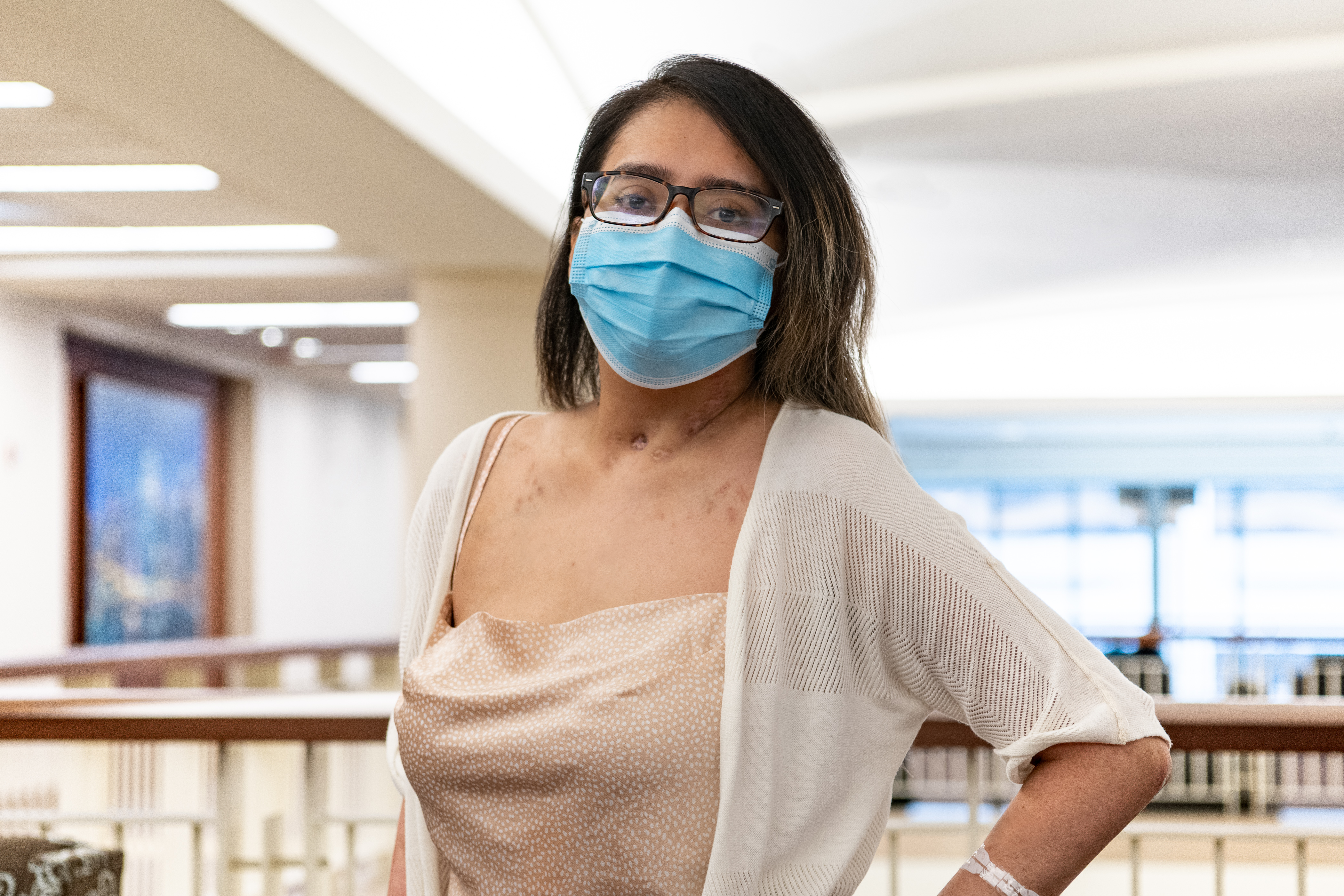First COVID-19 double-lung transplant patient goes home

The first COVID-19 patient in the U.S. to receive a double-lung transplant was discharged from the hospital this week, according to news reports.
After the coronavirus inflicted irreversible damage to her lungs, 28-year-old Mayra Ramirez underwent the transplant on June 5, Live Science previously reported. To qualify for the procedure, she first had to test negative for the virus, as transplant patients must take immune-suppressing drugs following the surgery. The drugs prevent the body from rejecting the new organ, but hobble the immune system's ability to fight off an active infection.
"Once Mayra's body cleared the virus, it became obvious that the lung damage wasn't going to heal, and we needed to list her for a lung transplant," Dr. Beth Malsin, a pulmonary and critical care specialist at Northwestern Memorial Hospital, said in a statement. Ramirez received her new lungs two days later.
Related: How long can organs stay outside the body before being transplanted?
Ramirez woke up following the 10-hour operation with "all these tubes" coming out of her — "I just couldn't recognize my own body," she told The New York Times. Prior to the surgery, Ramirez spent six weeks in the intensive care unit (ICU) on a ventilator and an extracorporeal membrane oxygenation (ECMO) machine, which pumps oxygenated blood through the body when the heart and lungs cannot do so alone.
"I don't remember anything during my six weeks in the COVID ICU. When I finally woke up, it was the middle of June and I had no idea why I was in a hospital bed," Ramirez said in the statement from Northwestern. When she finally awoke, her nurses asked if she knew the date and Ramirez guessed that it was early May, according to the Times. She was able to return home on July 29.
Ramirez must take anti-rejection medications for the rest of her life, but because she is young and healthy, "she'll continue to get stronger and stronger," her surgeon Dr. Ankit Bharat told The New York Times. Following lung transplants, more than 85% to 90% of patients survive one year and can function independently in daily life, Live Science previously reported. About 50% of lung transplant recipients survive for at least five years following the procedure, and there have been reports of some people living 20 years or more, according to the United Kingdom National Health Service.
Get the world’s most fascinating discoveries delivered straight to your inbox.
"She asked if she could go skydiving. We'll probably get her there in a few months," Bharat said of Ramirez.
Following Ramirez's transplant, Northwestern conducted a second double-lung transplant for Brian Kuhns, a 62-year-old coronavirus patient.
"Mayra and Brian wouldn't be alive today without the double-lung transplants," Bharat said in the statement. "COVID-19 completely destroyed their lungs, and they were critically ill going into the transplant procedure making it a daunting undertaking." The procedure typically takes six to seven hours, but both Kuhns and Ramirez underwent 10-hour surgeries because there was so much inflammation and dead tissue in their lungs.
Related: 20 of the worst epidemics and pandemics in history
With both Kuhns and Ramirez now in recovery, Northwestern has two additional COVID-19 patients awaiting double-lung transplants and the hospital is consulting other transplant centers on how to approach the difficult surgery, the Times reported.
"It will be a challenge for physicians to determine which patients truly are candidates and what's the timing," Dr. Tiago Machuca, a thoracic surgeon at the University of Florida Health Shands Hospital in Gainesville, told the Times. A COVID-19 patient transferred from another state recently received a double-lung transplant at Shands Hospital, he noted.
"We don't want to do it too early when the patient still can recover from COVID lung disease and resume with good quality of life, but also you don't want to miss the boat and have a patient where it's futile, the patient is too sick," he said.
"I think people need to recognize this option earlier and just start at least talking about it before it gets to that point," Bharat told the Times.
Originally published on Live Science.

Nicoletta Lanese is the health channel editor at Live Science and was previously a news editor and staff writer at the site. She holds a graduate certificate in science communication from UC Santa Cruz and degrees in neuroscience and dance from the University of Florida. Her work has appeared in The Scientist, Science News, the Mercury News, Mongabay and Stanford Medicine Magazine, among other outlets. Based in NYC, she also remains heavily involved in dance and performs in local choreographers' work.
